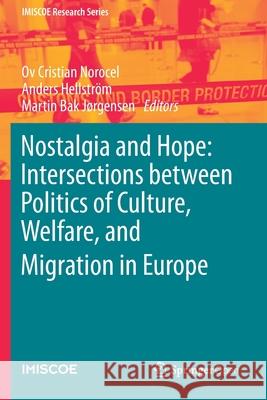Nostalgia and Hope: Intersections Between Politics of Culture, Welfare, and Migration in Europe » książka
topmenu
Nostalgia and Hope: Intersections Between Politics of Culture, Welfare, and Migration in Europe
ISBN-13: 9783030416966 / Angielski / Miękka / 2020 / 235 str.
Nostalgia and Hope: Intersections Between Politics of Culture, Welfare, and Migration in Europe
ISBN-13: 9783030416966 / Angielski / Miękka / 2020 / 235 str.
cena 261,63
(netto: 249,17 VAT: 5%)
Najniższa cena z 30 dni: 250,57
(netto: 249,17 VAT: 5%)
Najniższa cena z 30 dni: 250,57
Termin realizacji zamówienia:
ok. 16-18 dni roboczych.
ok. 16-18 dni roboczych.
Darmowa dostawa!
Kategorie:
Kategorie BISAC:
Wydawca:
Springer
Język:
Angielski
ISBN-13:
9783030416966
Rok wydania:
2020
Wydanie:
2020
Numer serii:
000331418
Ilość stron:
235
Waga:
0.36 kg
Wymiary:
23.39 x 15.6 x 1.35
Oprawa:
Miękka
Wolumenów:
01
Dodatkowe informacje:
Wydanie ilustrowane











